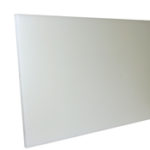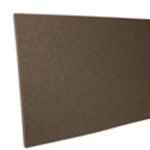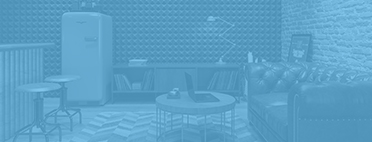
People of all ages enjoy listening to the soothing sounds of instruments playing together harmoniously. Many musicians spend hours practicing every day so they can become masters of their art form. There are so many instruments that create beautiful sounds, but many of them can be loud.
If you’ve ever noticed the seating arrangement of an orchestra, you know that brass and woodwind instruments are often located towards the back. That’s because they are some of the loudest instruments in decibels. For reference, here is a list of the loudest musical instruments and their decibel levels:
- Trombone: 85 – 114 dB
- Clarinet: 85 – 114 dB
- Oboe: 95 – 112 dB
- Cello: 85 – 111 dB
- Trumpet: 80 – 110 dB
- French Horn: 90 – 106 dB
- Piccolo: 90 – 106 dB
- Flute: 92 – 103 dB
Tips for Soundproofing Your Home
Practicing your instrument at home is vital to building your musical skills and strengths. As well-rehearsed as you might be, however, your neighbors may not appreciate all the music coming through the walls. Soundproofing your home and practice space can help keep loud instruments from disturbing others. Here are four soundproofing tips you can follow to continue practicing while giving your neighbors and housemates peace of mind.
1. Scan for Gaps
Find any gaps in the windows and doors of your practice room. Sound can travel through gaps, even if they’re small, so eliminating the gaps will help keep sound from leaking out of the room. Cover cracks by using a door sweep on both sides of the door and hanging heavy-duty curtains over the windows. Alternatively, use foam weather-stripping to fill in the cracks.
2. Lessen Reverberation
Sound waves reflect and bounce off hard surfaces. They will continue reverberating across the room until they run out of energy. To help combat reverberation, consider adding soft materials around the room, such as a carpet or thick rugs. You could also hang materials on the wall, like curtains or tapestries.
3. Adapt Your Space
You may need to determine an area in your practice space that is less likely to transmit sound in problematic ways. Consider practicing closer to a wall that faces the outside or isn’t shared with another living space. Based on the arrangement of your home, you will need to determine which area in your practice room is least likely to disturb others.
4. Add Soundproofing Panels or Foam
If you want to ensure your practice space is soundproof, install acoustic paneling or foam on the walls and ceiling. Sound absorption panels and foam can reduce sound by absorbing the sound waves. These panels prevent sound from getting out and getting in. As a result, soundproofing panels can reduce noise while improving your room’s acoustics, making your playing sound clearer.
Soundproof Your Practice Room
Practice your instrument at home in peace. When you soundproof your practice area, you won’t have to worry about others hearing. At Soundproof Cow, we have all the materials you need to create your rehearsal space. Visit our website to purchase your soundproofing materials today.








